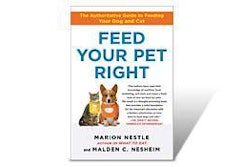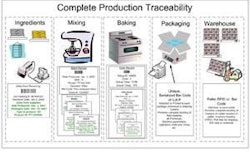Recently a newspaper reporter called seeking information for an article he was researching on corporate social responsibility in the pet industry. One of his questions was whether petfood companies participate in community programs and charitable causes. Of course, my answer was a resounding yes!
I told him that if he looked up any petfood manufacturer’s website or just happened on one through an internet search, he’d almost assuredly find information about how that company was giving back to the pet community. (Or just check our news page, which usually includes at least one story about a petfood company doing a good deed.)
In fact, I said, it would probably be easier to find petfood companies that did not donate food to shelters, run a charitable foundation or somehow give in another way than it would be to list all the ones that do.
For example, I can’t help being impressed by Iams’ recent announcement that its annual Home 4 the Holidays program resulted in more than 1.1 million pets being adopted. Though the program fell short of its goal of placing 1.5 million animals in new homes, its 2010 achievements included:
- Working with more than 3,500 shelters and other animal organizations around the world;
- Adopting out nearly 600,000 dogs and just over 500,000 cats;
- Finding homes for about 23,000 other animals, including rabbits, reptiles, birds and horses; and
- Launching a campaign involving a special Facebook page, other online promotions and specially marked bags of Iams products that resulted in 5 million pet meals being donated.
I could go on and on about similarly impressive programs, donations to animal shelters or petfood pantries and myriad other large and small ways that petfood companies do good. And, speaking of large and small, it’s not just the big guys—such as Iams backed by its global giant parent, Procter & Gamble—that give back. As I told the reporter, it’s nearly everyone, even tiny treat companies that might only be able to afford to donate broken (but perfectly healthy) biscuits.
Now, no company in any industry makes donations or gives to charitable causes just to get a warm and fuzzy feeling, though that’s not a bad reason. More and more, researchers and business executives alike have come to believe that being socially responsible and embracing a purpose pays off financially as well.
“Purpose isn’t just good for the soul, it’s actually really good for the bottom line,” said Dell’s former chief marketing officer, Erin Nelson, at the Association of National Advertisers’ annual convention in October 2010 in Orlando, Florida, USA. She was joined onstage by executives from other Fortune 500 companies such as Coca-Cola, Cisco, Target and Procter & Gamble (there’s that name again) all essentially saying the same thing.
According to the Second Annual Corporate Social Responsibility Perceptions Survey, released in March 2010 by Penn Schoen Berland, Landor Associates and Burson-Marseller, more than 75% of consumers believe it’s important for companies to be socially responsible. And they might follow that belief with action:
- 55% of respondents said they’re more likely to choose a product that supports a specific cause when choosing among otherwise similar products; and
- 38% said they plan to spend the same or more for products and services from socially responsible companies, despite the economic downtown.
So, while every petfood professional should feel good about being part of an industry that gives so much to animals—which is one reason many of us got involved in petfood in the first place, right?—we should also take comfort knowing such giving helps keep the industry going strong.


















